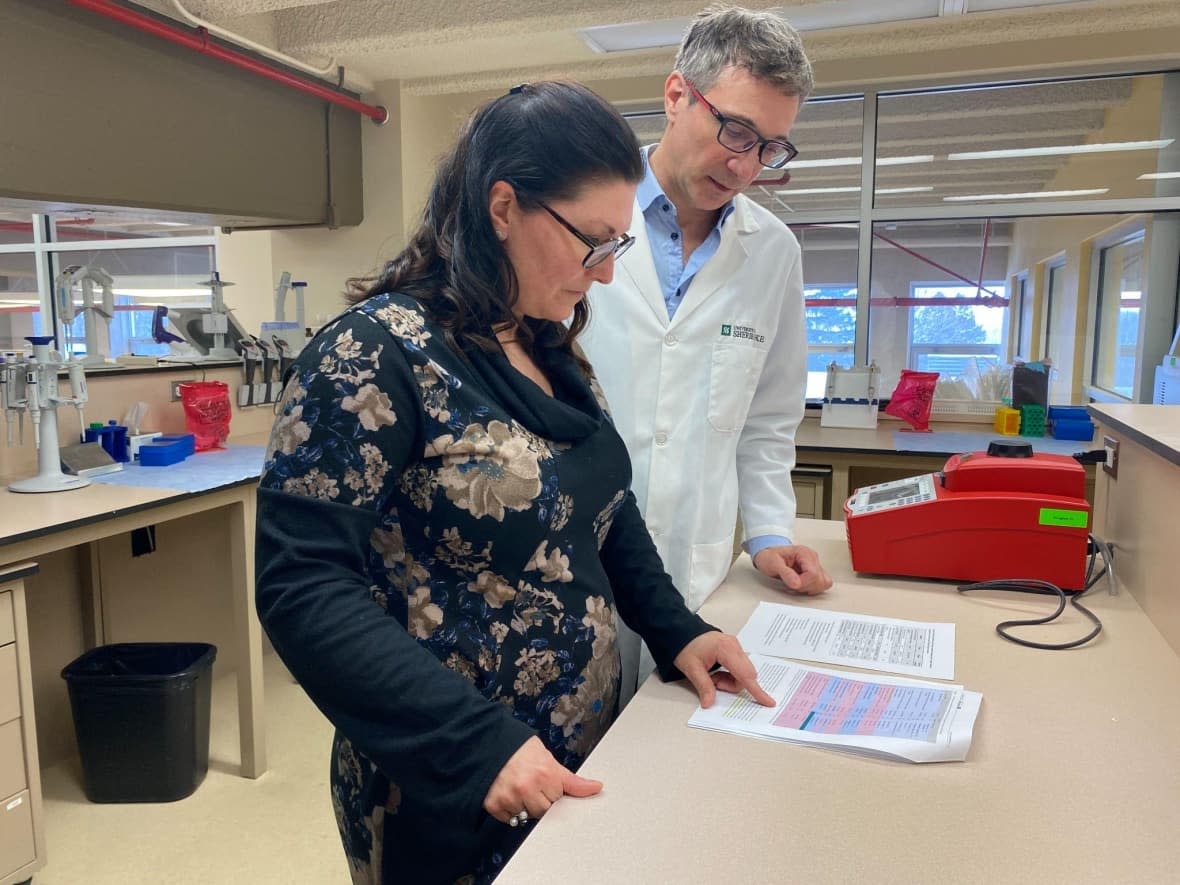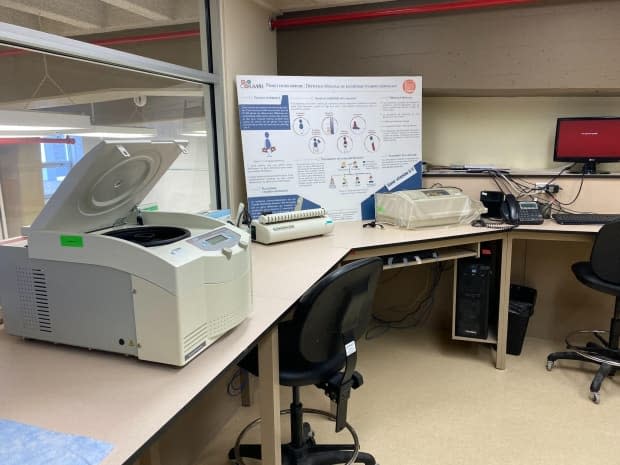Team of scientists discovers more genetic disorders in Quebec's Saguenay region

Quebec's Saguenay is known for its rugged wilderness, picturesque fjords and a population that is proud of its deep roots in the region.
But that population has also been a fascinating study for scientists, since it has remained geographically isolated since the 1830s.
Diseases that are considered rare globally pop up with alarming frequency among Saguenéens. And now, a team of local scientists has discovered even more abnormalities that could affect people's health.
Marie-Jacqueline Thomas, a genetic counsellor working for the local health authority, is part of the team that noticed the unusual genetic mutations while compiling data.
While combing over data from over 23,000 people who sought out genetic screening over the past 12 years, researchers discovered unusual genetic mutations they had never taken note of before.
"Our team was able to identify these 12 conditions that are looking more frequent than we were expecting them to be, given that they're rare genetic diseases. It all started from there," said Thomas.
Thanks to a team of genetic counsellors in the region, the data of thousands of people was studied in depth — providing information about the prevalence of diseases locally.
The results of their research led to the team identifying five never-before-identified diseases in the region. The results of these findings were published in the American Journal of Medical Genetics this month.
Ranging from genes that can cause congenital hearing loss to some that can cause lethal conditions — they found that a high proportion of people in the region are carriers for 12 rare conditions.
"We've been working more strongly at identifying the carrier frequencies. But this has been years and years and years in the making and I would even say genetic counsellors in Saguenay 20 years ago were starting these databases …. "[It's a] really great feeling for our whole team to take those clinical observations," said Thomas.
She says now that genetic researchers are aware of the overall trends, they can better test preventively and increase awareness in the region.

General lack of genetic diversity
Thomas says some of these diseases have a high carrier frequency.
For instance, a genetic disease that causes congenital hearing loss had a frequency of one in 32 people — a significant percentage, says Thomas.
Some of the 12 diseases are more common than others.
"They're all extremely different. The only thing that I could say is really the same in all of them is the way that they're inherited," said Thomas.
"They're all autosomal recessive conditions, which means that both parents need to be carriers of the condition for there to be an increased risk of having a child who's affected with that condition. So that's really what links them."
"When you have a geographically isolated population in Saguenay who had giant families and lots of kids, there could be an increased chance of these kids being carriers of these conditions."
The 'founder effect'
Luigi Bouchard, the co-chair of the Recherche génétique et parcours de vie en santé program, says this relates to a concept called the "founder effect."
"In the region, there have been a few thousand founders … in a few waves of migration. And it's really just happenstance that these founders, when they decided to migrate, were carriers of certain rare diseases, including the diseases we are talking about today," said Bouchard.
Thomas says these small groups have their own type of "genetic baggage."
"You know, we could trace back, sure, a common ancestor between maybe two people back 10 generations, but that's not consanguinity. That's not a close relation," said Thomas, adding that among those they tested for these genes, many had no links to the same family.

Information could help screen families
Because testing has changed so much over the past few decades, Thomas says discovering patterns in genetic mutations has become even more common and accessible.
"We really would like to … increase awareness in the medical community in our region and in Quebec as a whole because three other of the conditions may not be lethal, but have important medical surveillance and management implications as early as childhood," said Thomas.
Thomas said it important for these new diseases to be added to current testing programs to allow carrier couples to make informed decision-making.


